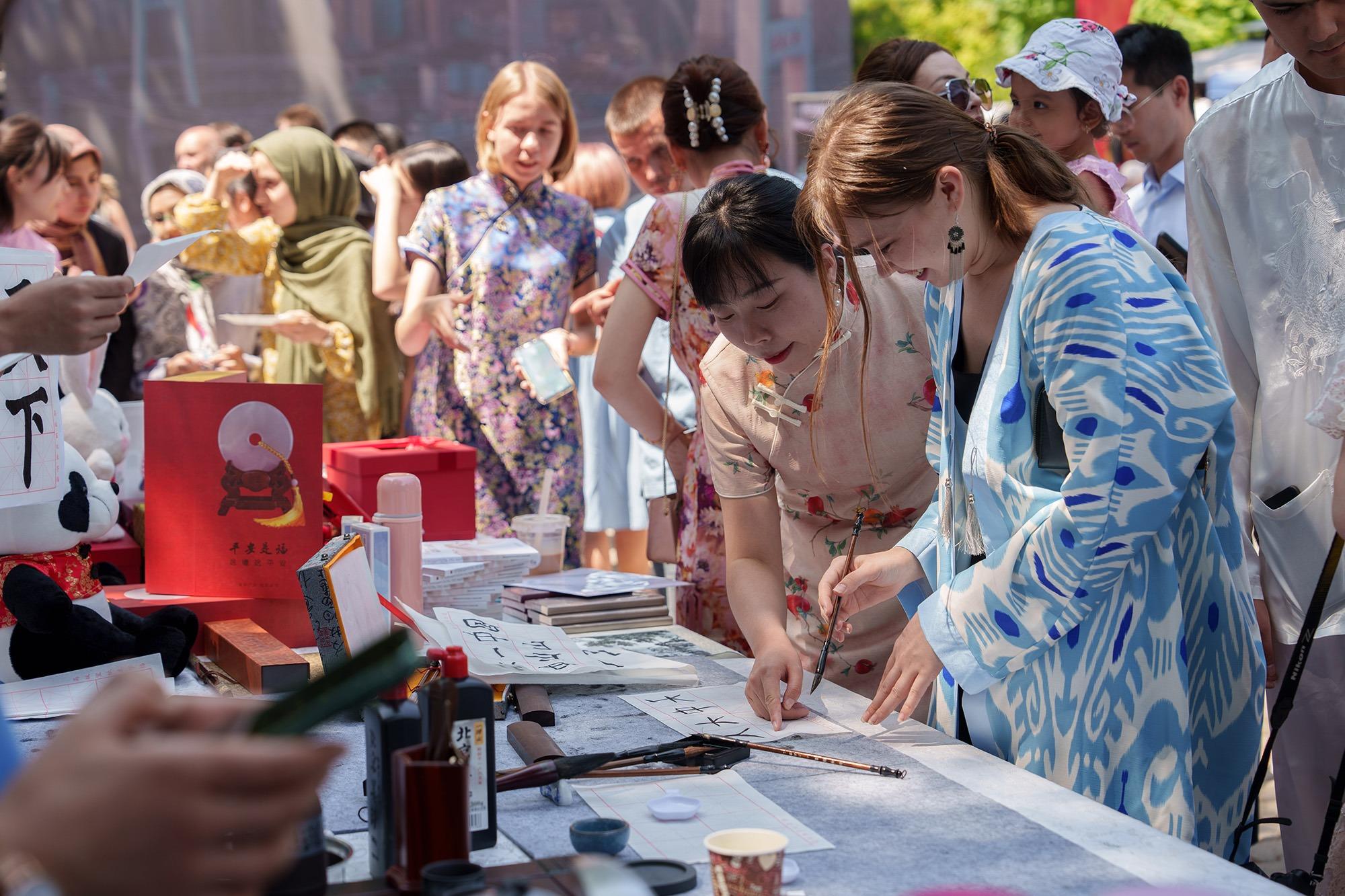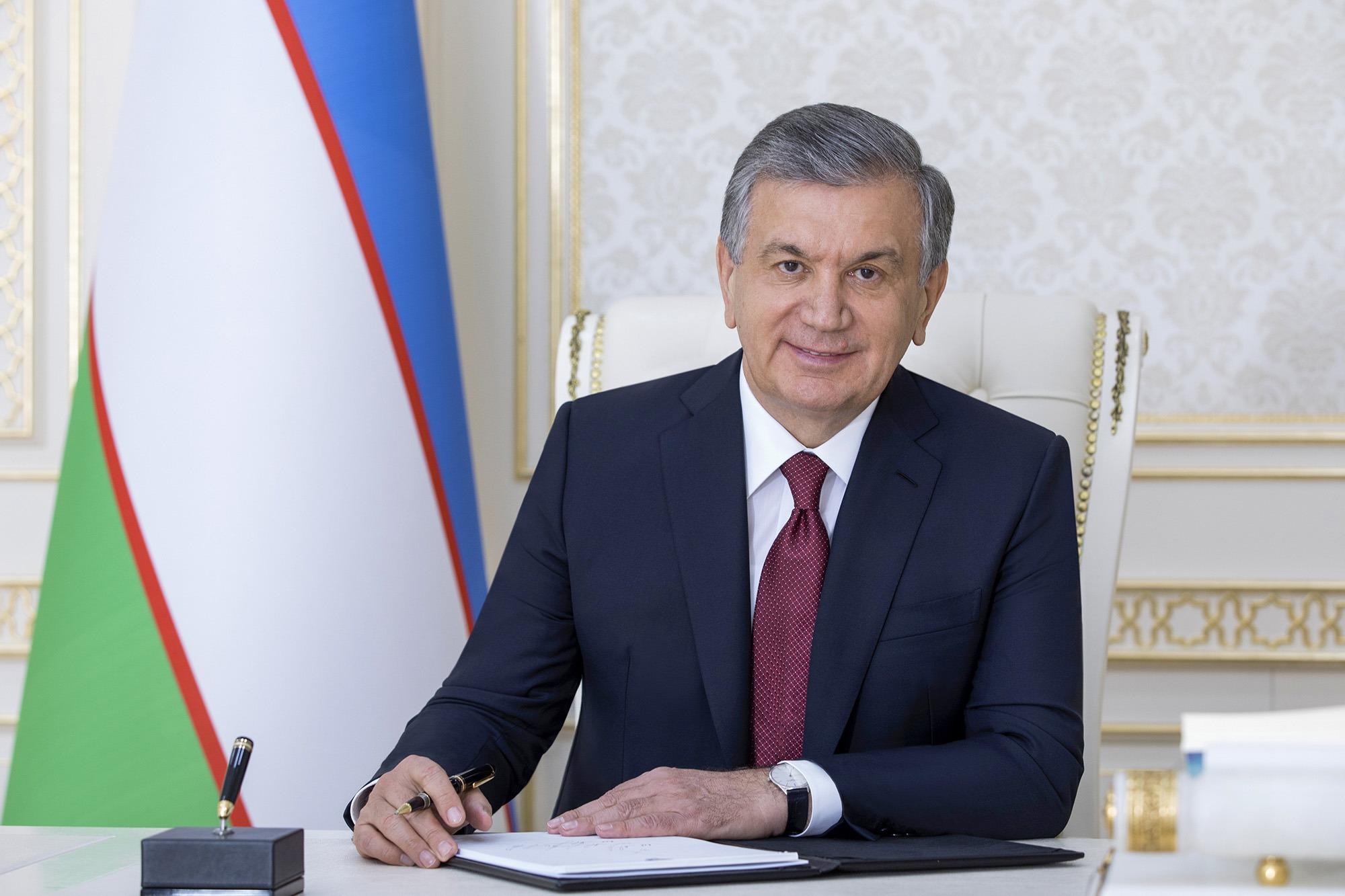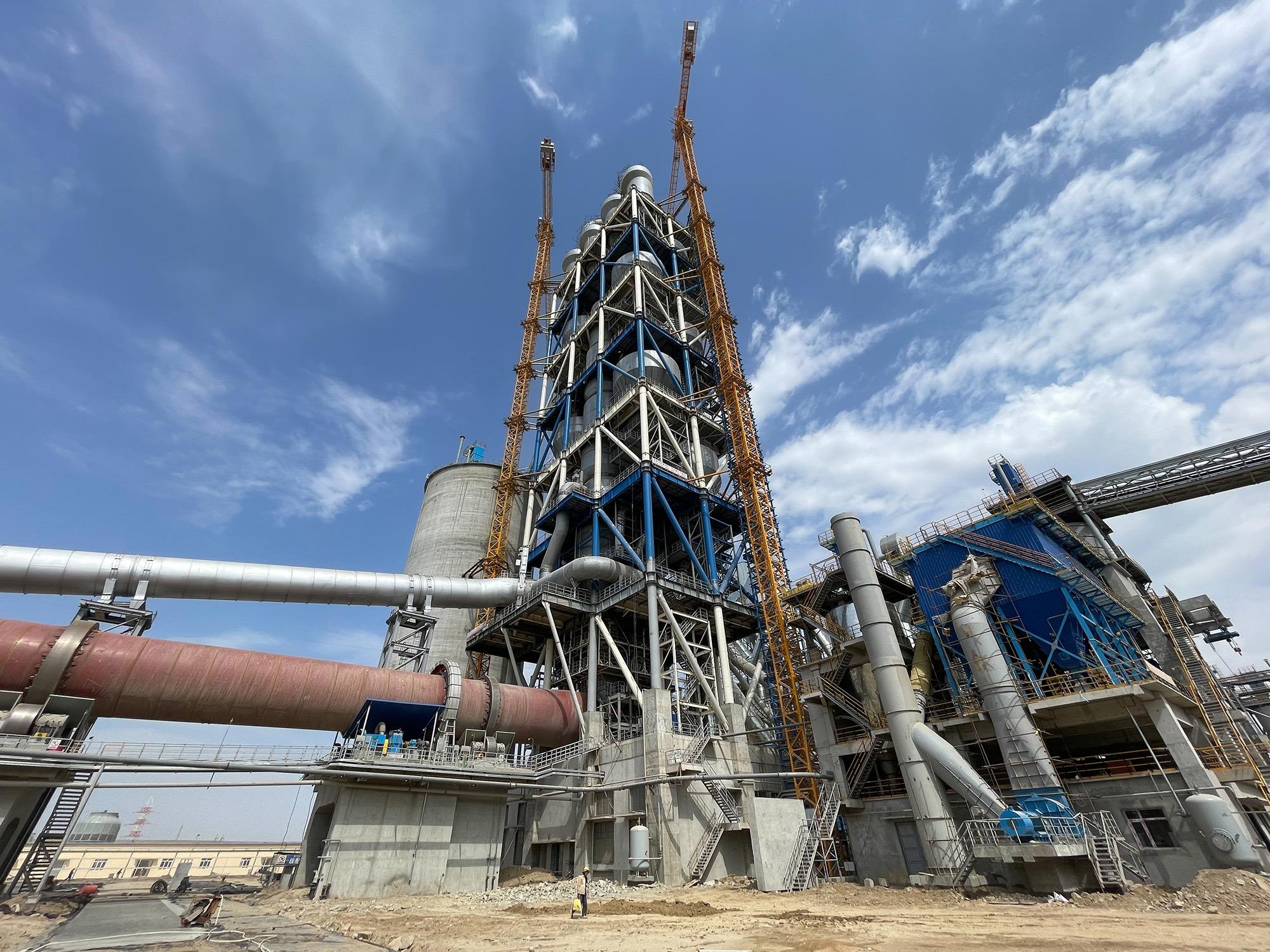Signed article by Shavkat Mirziyoyev, president of the Republic of Uzbekistan
 Visitors try out Chinese calligraphy at a park in Tashkent, Uzbekistan, on May 27, 2023. (PHOTO / XINHUA)
Visitors try out Chinese calligraphy at a park in Tashkent, Uzbekistan, on May 27, 2023. (PHOTO / XINHUA)
Recently, we have welcomed the year 2024, crossing the threshold of a new life cycle. The first month of a new year is always a time of meetings of the closest friends, a time of new hopes and accomplishments.
It is profoundly symbolic that this year I will make my first visit to the Celestial Empire at the invitation of the distinguished President of the People's Republic of China, His Excellency Xi Jinping.
Every time I visit China, I sincerely admire the scale of the reforms taking place here, the accomplishments, creative strength, diligence and talent of the Chinese people, who are confidently pursuing the path of modernization to realize their centuries-old dream.
Over the past decade, the People's Republic of China has turned into a mighty world power, achieved tremendous scientific, technological and innovative progress, and created a unique ecosystem of economic and business development.
The country has acquired a completely new image, the people's welfare has been steadily growing, and a firm intellectual foundation has been forming for China's further development.
Today, China holds leading positions in world politics and governance as a responsible participant in key international processes. President Xi Jinping's global initiatives in development, security and intercivilizational dialogue are significantly contributing to addressing common global challenges and accelerating the transition to a more sustainable and inclusive future.
The People's Republic of China takes a big part to support the economic growth of developing countries by expanding trade and investment cooperation, as well as implementing infrastructure connectivity projects.
As esteemed President Xi Jinping fairly noted, China is not only driven by domestic development, but is also looking globally and extending its responsibility as a major power.
Such impressive achievements of China are the result of the forward-looking, deliberate and creative policies, carried out under the leadership of President Xi Jinping.
Uzbekistan, as a friendly neighbor and comprehensive strategic partner of China, is sincerely pleased with the successes.
The development of multifaceted relations with China has been, and remains one of the main priorities of Uzbekistan's foreign policy.
I would like to note with satisfaction that relations of our countries are experiencing the best period in their history, demonstrating a solid high dynamic. I believe that this is indeed logical. "Great ancient civilizations always look alike, understand each other and are close in spirit." The Uzbek and Chinese peoples share similar cultures and ideals. Our historical ties go back to the origins of the Great Silk Road, through which much of the world's trade used to pass.
The oldest written sources recount in detail the visit of Zhang Qian, the first Emissary of the Han Dynasty in 126 BC to the ancient state of Parkana in the Fergana Valley (in Chinese — Dayuan).
Chinese silk, paper, porcelain, tea and other goods became world famous and widespread thanks to the markets of such ancient trading cities of Uzbekistan as Samarkand and Bukhara. Special breeds of racehorses, alfalfa seeds, grapes, wine production technologies, cultivation of garden crops and others were brought from Fergana to China.
 Shavkat Mirziyoyev, president of the Republic of Uzbekistan. (PROVIDED TO CHINA DAILY)
Shavkat Mirziyoyev, president of the Republic of Uzbekistan. (PROVIDED TO CHINA DAILY)
Even back then, our countries — two great civilizations of their time — exchanged not only goods, but also knowledge. Scientists, mathematicians, astronomers and healers from Central Asia made a significant contribution to the development of Chinese science. Many of them became prominent public figures and scientists of the ancient China.
It is known that the legendary Ming Dynasty admiral, traveler and a diplomat, Zheng He was the grandson of a native of Bukhara, Sayyid Ajall Omar, the first governor of Yunnan province.
The Canon of Medicine and other works of the great Abu Ali ibn Sina from Bukhara were translated into Chinese and were used in the creation of the works Hui Hui Yaofang ("Muslim Medicines") and Ben Cao Gang Mu ("Treatise on Medicinal Herbs").
The studies of historians indicate that the Tang Dynasty period was marked by the zenith of China's humanitarian exchanges with Samarkand, Bukhara and other major cities in our region. The art, fashion, national cuisines and other elements of cultural exchange grew quite famous in the Chinese capital and regions.
Rooted in centuries-old cultural and historical ties, and modern relations based on the closeness of mentalities and strong principles of friendship, mutual respect and trust, today, serve as a solid foundation for our comprehensive and full-scale cooperation.
The Chinese people frequently say, "Brothers of the same heart can melt even iron." There is also a saying in Uzbekistan, "If brothers are united, a horse to ride shall always be."
Over the past three decades, thanks to the trustful dialogue at the top-level, and regular summits of the heads of state, the interaction between our two countries has been expanding even more, reaching new historical heights.
A unique multilevel system of development for mutually beneficial cooperation is formed, including such mechanisms as the Intergovernmental Committee, the Inter-parliamentary Group and the Strategic Dialogue at the level of foreign ministers, as well as active humanitarian and interregional exchanges.
We share a common desire to ensure regional and international security, a commitment to the central role of the UN and multilateral cooperation in tackling global challenges and achieving Sustainable Development Goals.
We firmly support each other on issues concerning the fundamental interests of our countries, such as state sovereignty, territorial integrity, compliance with the principles of good-neighborliness and respect for the choice of one's own path of development, as well as cultural and civilizational identity.
Trade, economic and investment cooperation between Uzbekistan and China has been steadily growing.
Following the outcomes of last year, the bilateral trade turnover grew by 40 percent, with China being our top trade partner.
Investment interaction is also actively developing. In recent years, the volume of Chinese investments has increased five-fold, and the number of enterprises with Chinese capital in various sectors of the economy has tripled.
A number of large joint investment projects are underway in high technology, alternative energy, chemistry, mechanical engineering, metallurgy, electrical engineering, infrastructure modernization and other areas.
Thanks to our Chinese partners, we are taking important steps in developing green energy and creating 27 gigawatts of renewable energy generation capacity by 2030.
On the basis of this experience, we elected the Syrdarya region of our country as a pilot zone for innovations and implementation of joint perspective projects on the establishment of agro-industrial parks, automobile production and agricultural clusters.
The established firm and direct contacts enable the development of other regions as well. Last year, delegations with heads of all our regions visited China for building partnership with provinces and cities of the People's Republic of China.
An intensive and fruitful exchange of experience and knowledge in modernization and solving socioeconomic problems has been established. China's successful experience in poverty alleviation has proved to be highly relevant and useful to us.
We intend to further deepen this area of cooperation.
The Uzbek and Chinese peoples traditionally have strong ties in the cultural and humanitarian sphere. As a Chinese proverb says, "The friendship of countries lies in the closeness of nations, and the closeness of nations lies in the closeness of hearts."
It is very gratifying to note that year by year the interest of our citizens in studying the Chinese language, the rich history and culture of your country is growing. Chinese is taught not only in universities, but also in schools within the educational curriculum as a second foreign language.
Confucius Institutes are operating in Tashkent and Samarkand.
Several thousands of our young women and men are studying under bachelor's, master's and doctoral programs in the leading Chinese universities to become qualified specialists and take part in the implementation of future joint projects.
The historical and cultural proximity of our countries also benefits the development of active tourist exchanges. Uzbekistan is among the countries that Chinese tourist groups absolutely must visit.
We, in Uzbekistan, are steadily developing tourism infrastructure. The regions of our country have established partnerships with Chinese provinces, which serves to attract hundreds of thousands of Chinese tourists every year. I would like to emphasize that hospitable Uzbekistan with its unique ancient monuments and picturesque nature always enjoys welcoming Chinese friends.
Soon in China, the Days of Uzbek Culture, the exhibition of fine and folk applied arts of Uzbekistan and the Uzbek-Chinese Educational Forum will kick off, as well as the broad celebration of the 30th anniversary of the establishment of partnership relations between Tashkent and Shanghai will take place.
 A Chinese-funded cement production line is seen in the Samarkand region of Uzbekistan on Sept 16, 2023. With a capacity of 7,500 tons per day, it is the largest project of its kind in Central Asia. (PHOTO / XINHUA)
A Chinese-funded cement production line is seen in the Samarkand region of Uzbekistan on Sept 16, 2023. With a capacity of 7,500 tons per day, it is the largest project of its kind in Central Asia. (PHOTO / XINHUA)
Taking this opportunity, I would like to invite our Chinese friends to take an active part in these events and get acquainted with the unique and centuries-old culture of the Uzbek people.
The multifaceted cooperation between our countries is a vivid model of friendship and mutual support in the international arena.
Uzbekistan is actively participating in various programs as part of the implementation of China's initiative — "One Belt, One Road", which has become a global consolidating force.
In 10 years, this grandiose idea of the revival of the Great Silk Road has gained supporters in all corners of the planet, uniting two-thirds of the world's countries. Today, from an appealing concept, it is turning into a practical reality. By renouncing the dividing line based on civilizational, economic and cultural differences, it has opened a whole new formula for strengthening interstate dialogue and cooperation, which enable to fully unite the efforts of mankind for common prosperity.
For us, the Belt and Road Initiative is not just an infrastructure project. Through the joint implementation of the initiative, the region is becoming an important link in global connectivity, overcoming transport remoteness.
And today we can firmly state that the earlier voiced predictions of skeptics about the predestined fate of the region's countries to become only a transit corridor for China's trade with Europe, South Asia and the Middle East failed to come true.
Today, investments are increasing to Central Asia, with the number of joint high-technology industries growing, which combined, enhances the economic potential of our countries.
China's strategic role enables Central Asia to be open to broad cooperation with the rest of the world, turning the region's geographical disadvantages into advantages. This, in turn, is an important condition for overall stability and sustainable development.
This is evidenced by the outcomes of the first summit of the heads of state of Central Asia and China, held in May last year in Xi'an, which were a breakthrough in our relations, and defined the future development of multilateral cooperation.
This format has huge potential for building a model of comprehensive development of the states of the region and the western provinces of China, opens the prospects for transition to close industrial and technological cooperation, as well as for the development of transport, digital and humanitarian connectivity of the Central Asian countries with China.
Despite the instability and turbulence in world politics, we are looking into the future with confidence and building joint creative plans. That is what we will be talking about in our upcoming meeting with the distinguished President of China, Xi Jinping.
I consider it is essential to develop a new long-term agenda and forward-looking programs for the implementation of the key tasks of multidimensional cooperation for decades to come.
First, the priorities of the Samarkand Solidarity Initiative for Common Security and Prosperity and President Xi Jinping's Global Civilization Initiative are in many ways similar and aimed at achieving one noble goal: strengthening global inter-civilizational dialogue.
Nothing should prevent its development, the creation of the necessary conditions for strengthening peace and stability, and seeking mutually acceptable compromises on the most pressing issues.
Second, we are interested in taking our relations to a qualitatively new and higher level. The difficulty and dynamics of the processes taking place in the world today require regular exchanges of views and close cooperation across the entire spectrum of Uzbek-Chinese cooperation.
Our countries are united in their desire to ensure stability and security in the Central Asian region, and the SCO area in general, including addressing the negative consequences of the situation in Afghanistan.
It is important to establish mechanisms for regular, inclusive political dialogue, to achieve a multidimensional and meaningful interaction of all key agencies. The process of establishing and strengthening of relations of cordial friendship, good-neighborliness and multifaceted cooperation must be constant.
Third, it is vital to maintain and build a dynamic pace of all-round trade and economic development, given the increasing range of new challenges to sustainable development such as the worsening energy, food and environmental crises.
It is already planned to soon approve a long-term Program of Large Infrastructure Projects with the participation of Chinese partners in the water, electric and energy grid, as well as road and railway industry in Uzbekistan.
In these, it is important to envisage the strengthening of cooperation in the field of industrial cooperation, and the expansion of digital and green technology transfers.
Dynamic development of our country, huge human resources and constantly growing scientific-technological and production-industrial potential inspire confidence in fruitful and effective implementation of this Program.
Fourth, joint work to ensure the development of transport and logistics infrastructure of foreign economic activity of our countries as part of the Chinese Belt and Road Initiative stands as a key direction for the long-term cooperation.
I am confident that the projects within the Belt and Road Initiative will unlock the untapped potential of Central Asia for promoting connectivity and inclusive cooperation with the rest of the world.
We attach strategic importance to the formation of reliable and cost-effective international corridors with market access to the countries of South and Southeast Asia, the Middle East, Europe and the entire Eurasian continent.
Development of a system of multioptional and multimodal routes for transportation of goods and passengers between China and Central Asia with access to the world market, creation of new terminals, construction of high-tech production storage facilities and complex infrastructure of roadside services, and digitalization of logistics will be an important contribution to the development of intracontinental links along the historic Great Silk Road.
Fifth, the importance of the role of people-to-people diplomacy in strengthening Uzbek-Chinese friendship is now becoming more evident. We have established strong institutional foundations for the development of cultural and humanitarian exchange, cooperation in education, healthcare, sports, tourism and archaeology. This has become a shared wealth, an inviolable foundation of understanding of our peoples.
As the famous poet of the Tang Dynasty Wang Zhihuan says, "One, wishing to see a thousand miles further, ought to elevate yet to another level."
The steady positive dynamics of the development of the entire spectrum of Uzbek-Chinese relations confirm that our noble thoughts and ideas will be indeed fulfilled, creating conditions for further deepening and giving new practical substance to a comprehensive strategic partnership in a new era.
The year 2024 is the year of the "Green Dragon", promising to bring luck, well-being and prosperity.
Taking this opportunity, I congratulate all the people of friendly China on the coming New Year on the lunar calendar — a wonderful holiday Chun Jie, wishing peace, prosperity and many successes on the journey of fulfilling the Chinese dream in the year of the 75th anniversary of the founding of the People's Republic of China.


